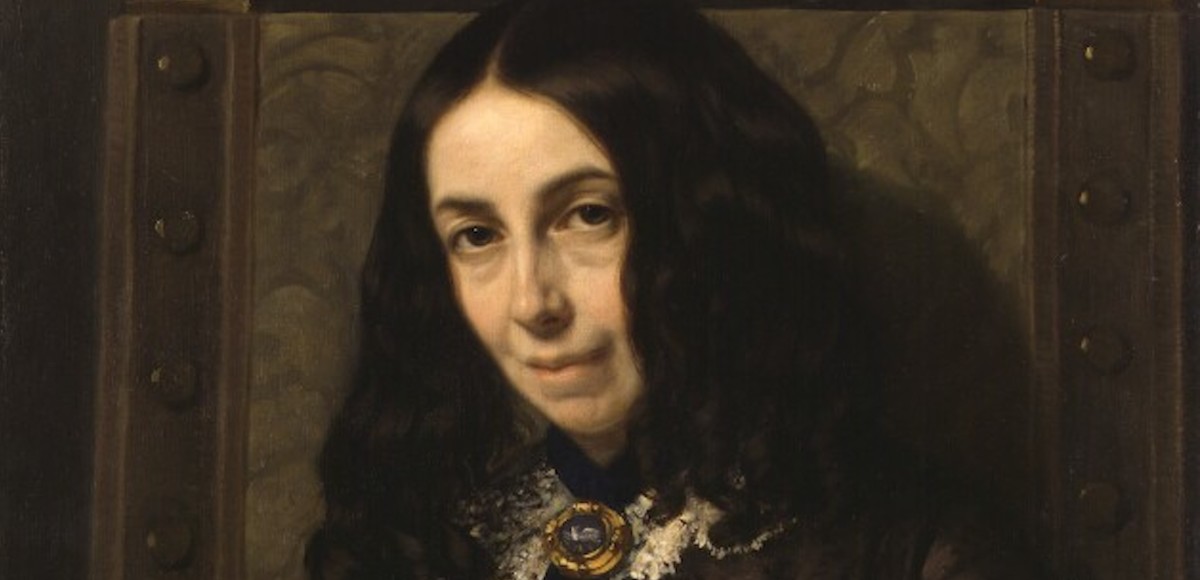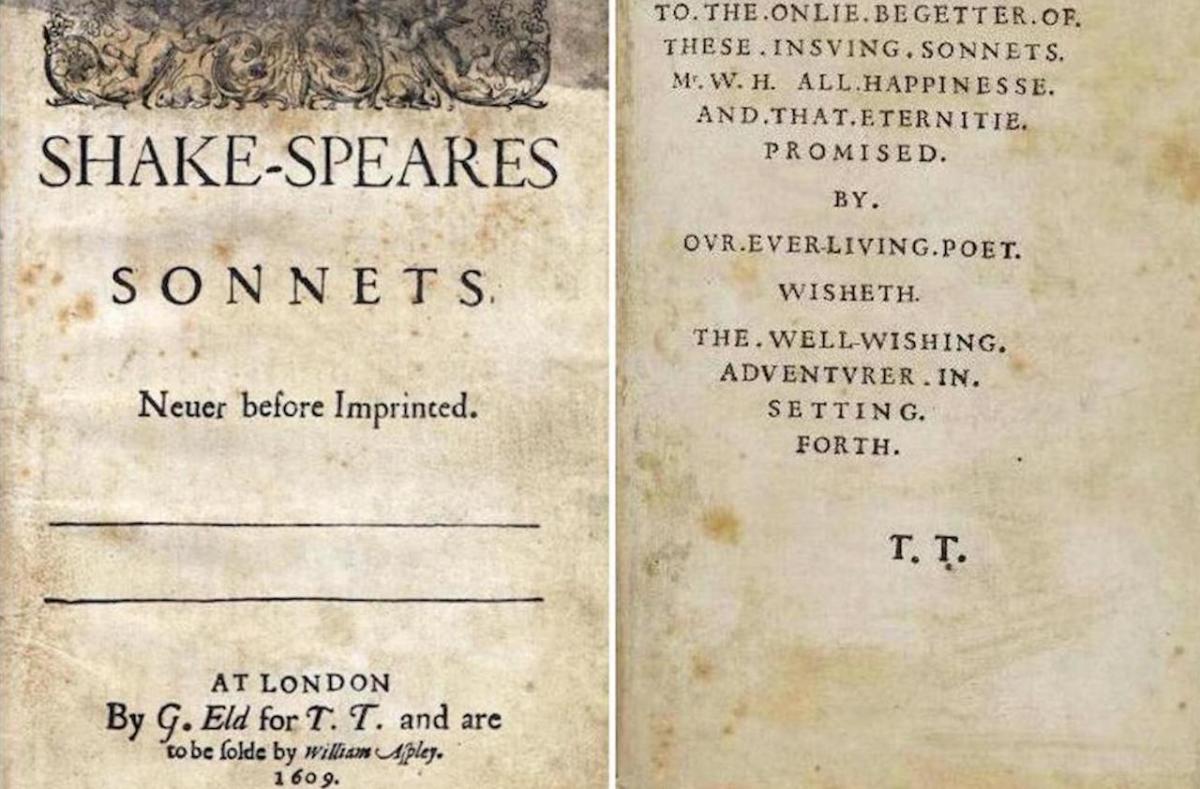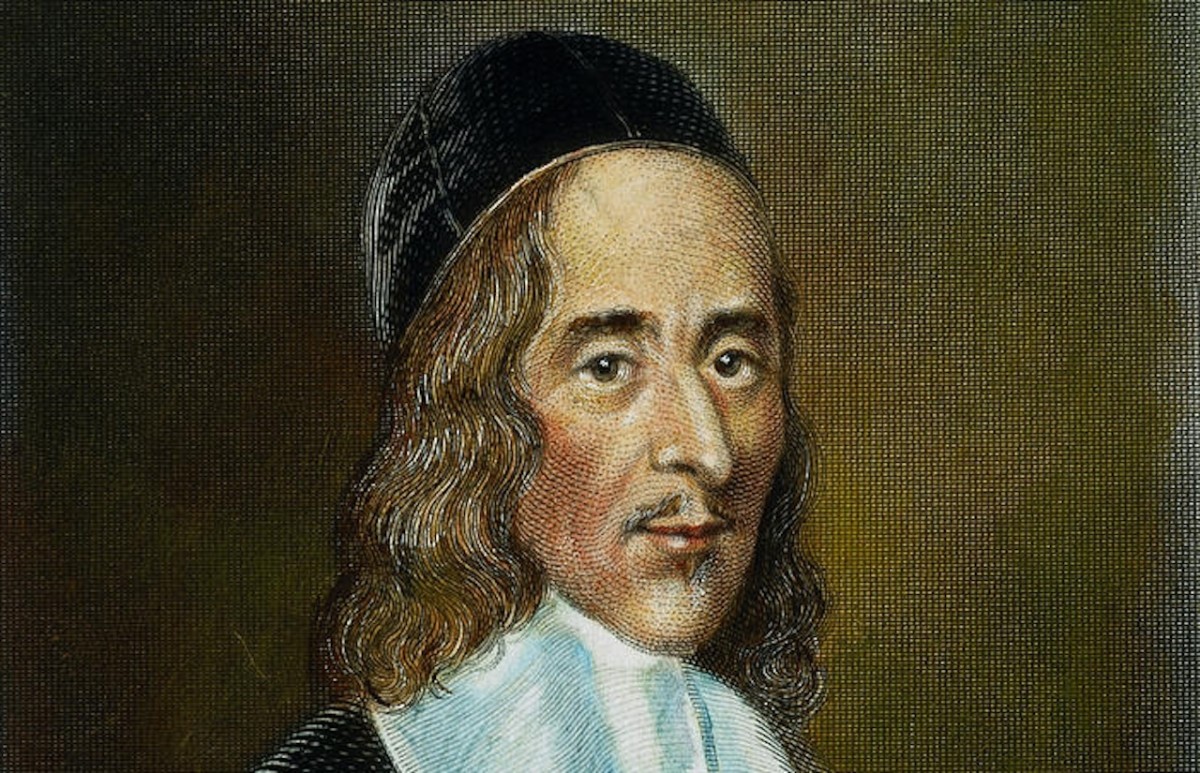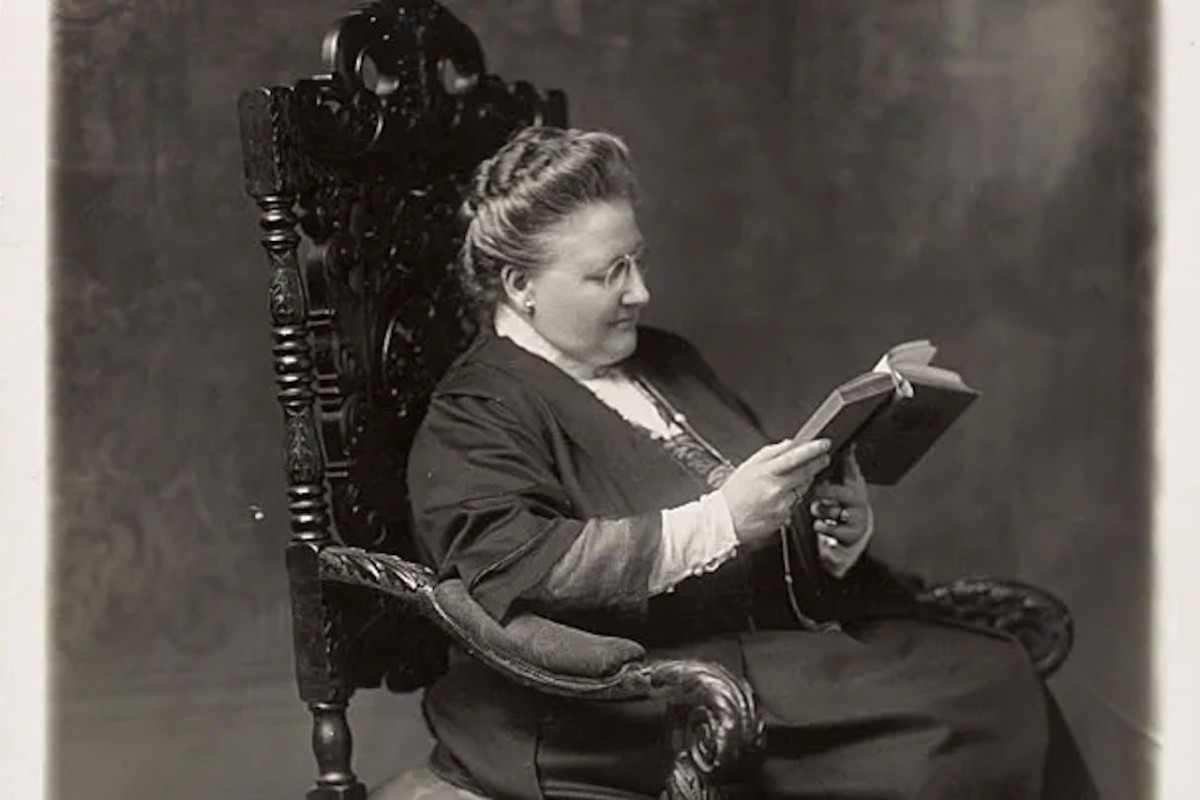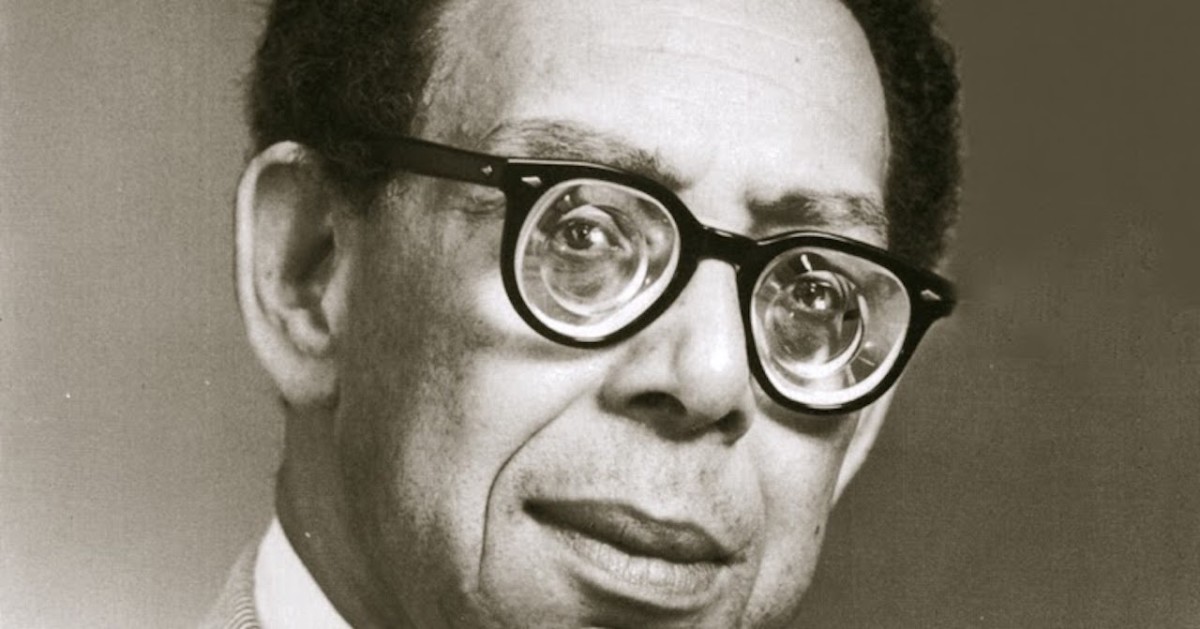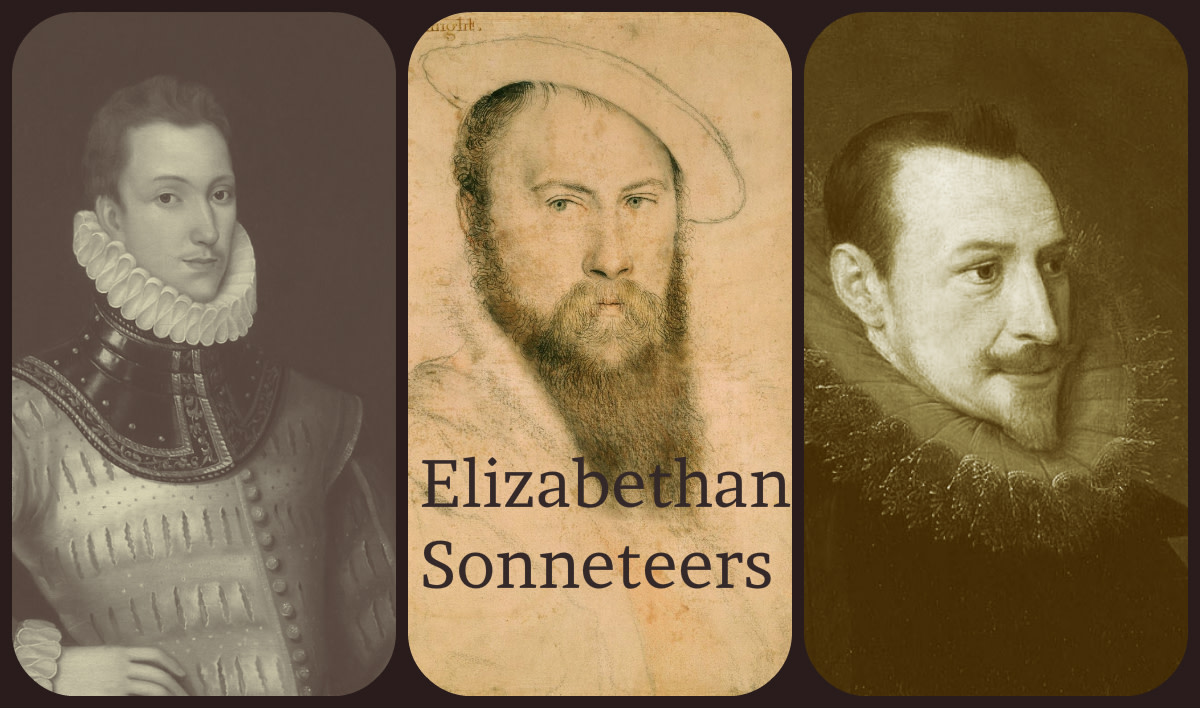Wilfred Owen's "Anthem for Doomed Youth"
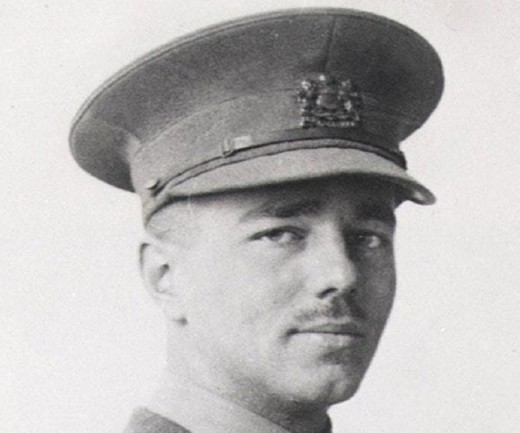
Introduction and Text of "Anthem for Doomed Youth"
Wilfred Owen's Petrarchan sonnet, "Anthem for Doomed Youth," features two questions regarding the deaths of soldiers dying in war: In the octave, the speaker asks, what is the point of tolling death knells for people who "die as cattle"? His bitter question dehumanizes the heroes who give their lives in service to their country.
In the sestet, the speaker asks, "What candles may be held to speed them all?" This question further demonstrates the skewed attitude of one who has not been able to reconcile the spiritual with the material, especially regarding the death of soldiers.
Anthem for Doomed Youth
What passing-bells for these who die as cattle?
— Only the monstrous anger of the guns.
Only the stuttering rifles' rapid rattle
Can patter out their hasty orisons.
No mockeries now for them; no prayers nor bells;
Nor any voice of mourning save the choirs,—
The shrill, demented choirs of wailing shells;
And bugles calling for them from sad shires.
What candles may be held to speed them all?
Not in the hands of boys, but in their eyes
Shall shine the holy glimmers of goodbyes.
The pallor of girls' brows shall be their pall;
Their flowers the tenderness of patient minds,
And each slow dusk a drawing-down of blinds.
Because the word processing system used by HubPages does not allow non-traditional spacing, please visit "Anthem for Doomed Youth" at Poetry Foundation to see the indentations formatted in this poem,.
Commentary on "Anthem for Doomed Youth"
The speaker in Wilfred Owen's Italian sonnet dramatizes hatred of war by creating a deeply bitter irony, pitting religious ceremony against the reality of the battlefield.
First Quatrain: Questioning Bells
What passing-bells for these who die as cattle?
— Only the monstrous anger of the guns.
Only the stuttering rifles' rapid rattle
Can patter out their hasty orisons.
The speaker poses his first question, "What passing-bells for these who die as cattle?" Then he haughtily asserts his own answer. The answer is none; or at least, according to this speaker, these poor dehumanized beings do not deserve the solemnity of the ringing of church bells for their deaths.
Of course, this speaker has been blinded by the horrors of war and remains unable to see that all of life has its horrors, and war in only one part of the totality of horrific acts that humankind perpetrates upon humankind.
It is doubtful that this speaker would claim that those who die at the hands of murderers and thieves be denied a spiritual ceremony in tribute to their lives. Yet he suggests that the brave soldier has only the "monstrous anger of the guns," "stuttering rifles' rapid rattle" to "patter out their hasty orisons."
Second Quatrain: Ceremony as Mockery
No mockeries now for them; no prayers nor bells;
Nor any voice of mourning save the choirs,—
The shrill, demented choirs of wailing shells;
And bugles calling for them from sad shires.
The speaker atheistically declares that religious ceremonies held for those "who die as cattle" are mere "mockeries," and that they die without "prayer nor bells."
The speaker laments that soldiers dying in battle have no spiritual succor, only the rough, rude paraphernalia of battle, "The shrill, demented choirs of wailing shells; / And bugles calling for them from sad shires."
Such a diminishment of the soul of a dying hero is beyond crass; the speaker is asserting a lie that has crawled out the belly of Satan. The apparent injustice that is done the soldier who dies in battle is accomplished in fact by this kind of art that seeks to startle while belittling those who deserve respect, honor, and admiration.
First Tercet: Debasing Heroes
What candles may be held to speed them all?
Not in the hands of boys, but in their eyes
Shall shine the holy glimmers of goodbyes.
The speaker shifts somewhat in the sestet. After having debased the fallen soldiers in the octave, the speaker affords a pittance of ceremony in the sestet.
After the soldier has died on the battle field, unidentified and alone, back home the funeral without a body will be a formality: young boys will not hold candles for the soldier, "but in their eyes / Shall shine the holy glimmers of good-byes."
The speaker, who has quashed any belief in solemn ceremony, now mocks the tears of younger brothers by calling them "holy glimmers of good-byes." The speaker has made it quite clear that the sestet will be spoken with deep, bitter irony.
Second Tercet: Bitter Irony
The pallor of girls' brows shall be their pall;
Their flowers the tenderness of patient minds,
And each slow dusk a drawing-down of blinds.
Thus the younger sisters will look pale and offer "flowers of the tenderness of patient minds." Again, the notion that these girls will have "patient minds" leaps out from the irony that the speaker has guaranteed.
If the reader has missed the intention that the speaker means to disparage what he holds to be futile deaths, the final line assures that the missing piece will not remain ungrasped.
The custom of lowering the window-shades in the room where the deceased's body rests is replaced with the "slow dusk" which substitutes for "a drawing-down of blinds." Only the dusk draws the blind—representing a neutral, natural phenomenon, not the people—representing a deliberate, humble act of respect.
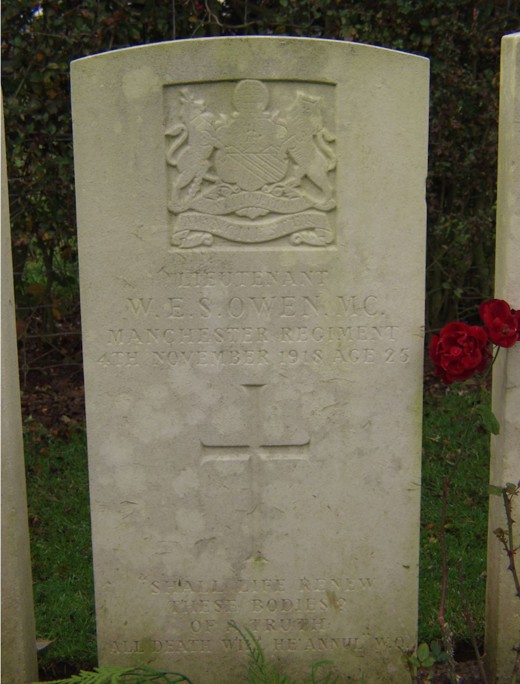
Regarding Wilfred Owen's Gravestone
Susan Owen, Wilfred Owen's mother, selected the epitaph for her son's gravestone:
Shall Life renew these bodies? Of a truth
All death will he annul
Unfortunately, that selection, because of what it leaves out, expresses the opposite sentiment from the one her son wrote into his poem "The End," from which the epitaph was taken.
If the reader sees only the question and response used for the epitaph, he will come away believing that Owen was expressing a Christian belief in life after death, but as his poem "The End" clearly reveals, he held no such belief. It is quite likely that Wilfred Owen was an atheist.
Here is the entire poem (my emphasis added, indicating the lines excised by Susan Owen):
The End
After the blast of lightning from the east,
The flourish of loud clouds, the Chariot throne,
After the drums of time have rolled and ceased
And from the bronze west long retreat is blown,
Shall Life renew these bodies? Of a truth
All death will he annul, all tears assuage?
Or fill these void veins full again with youth
And wash with an immortal water age?
When I do ask white Age, he saith not so,—
“My head hangs weighted with snow.”
And when I hearken to the Earth she saith
“My fiery heart sinks aching. It is death.
Mine ancient scars shall not be glorified
Nor my titanic tears the seas be dried.”
Clearly, what began as a question, "Shall Life renew these bodies?" remains a question expanded. Not only will the bodies not be renewed, but the tears also will not be assuaged. If any doubt lingers, just check out the first tercet, "When I do ask white Age, he saith not so,—."
Also note that Owen's speaker is posing his questions not to God but to "white Age." He expects to receive answers to profound questions that only God can answer from old, white-haired human beings—likely old, white-haired, gray-bearded men.
Likely, Susan Owen wished to rehabilitate her son's legacy by adding a suggestion that her son was a believer in Divinity, but she has merely foisted on the literary world a prevarication.
Also, Susan Owen was possibly trying to lighten her own sorrow at losing her son to war by assigning to him a belief that she held. One must feel double pity and sadness for Susan for her disingenuous act.
Commentary on Another Wilfred Owen Poem
- Wilfred Owen's "Dulce et Decorum Est" Wilfred Owen's war poem, "Dulce et Decorum Est," dramatizes the misery of war by portraying a scene with a soldier killed by mustard gas.
This content is accurate and true to the best of the author’s knowledge and is not meant to substitute for formal and individualized advice from a qualified professional.
© 2025 Linda Sue Grimes

